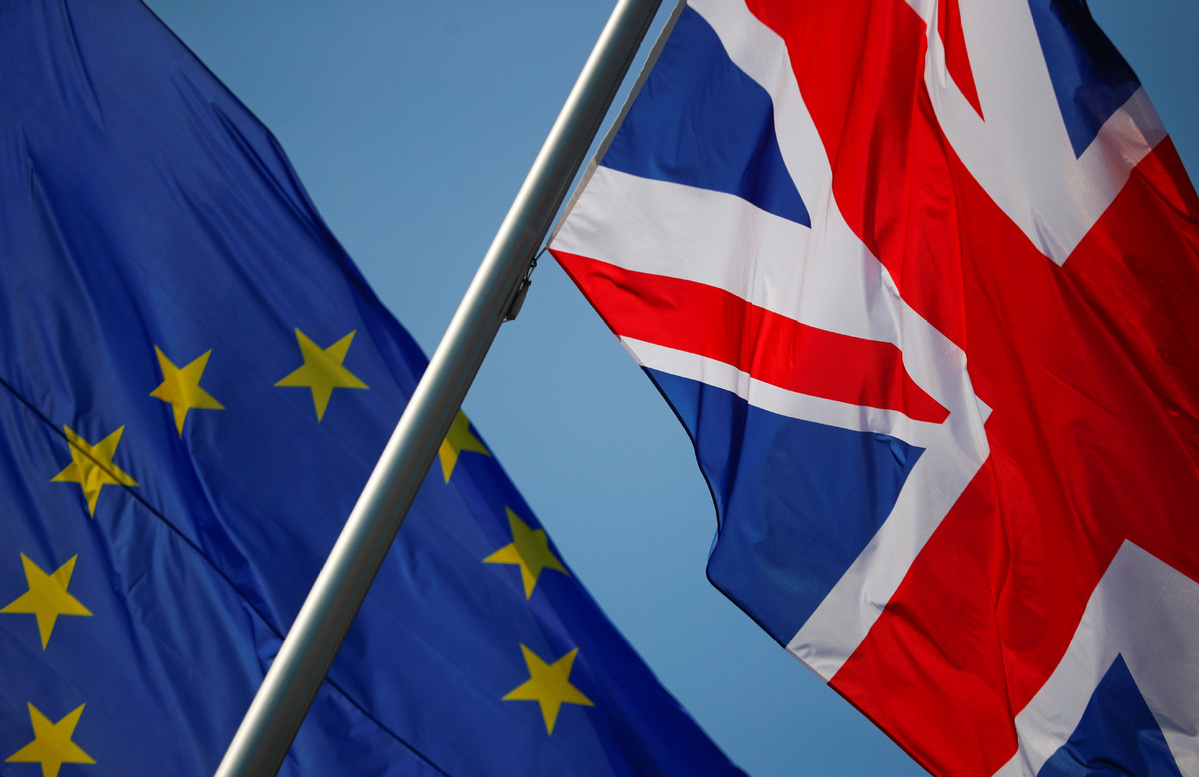British govt risks trade war with Brexit deal move
By JONATHAN POWELL in London | China Daily Global | Updated: 2022-06-14 10:28

The British government published draft legislation on Monday that will make unilateral changes to Northern Ireland's post-Brexit trade arrangements, including relaxing checks on some goods arriving in the province from the British mainland.
Observers say the move would give the UK government the power to tear up post-Brexit border rules without having to seek the agreement of the European Union.
The EU has warned the policy change could breach international law and start a trade dispute between the bloc and the UK.
The Financial Times reported that new legislation will give ministers sweeping powers and that the proposals face opposition from some Conservative members of Parliament and business groups.
It said the changes will override parts of the existing protocol, which prevents a hard border with EU member state the Republic of Ireland.
The Times newspaper quoted Ireland's foreign minister, Simon Coveney, as saying the move would breach international law and be "deeply damaging to relationships on this island and between the UK and the EU".
The system as it is now has led to a bitter row in Stormont, the Northern Ireland assembly, with the Democratic Unionist Party refusing to allow a new devolved government to be formed until its concerns are addressed.
The BBC reported that the new policy is expected to create red and green lanes, which would mean that goods shipped from Britain that would stay in Northern Ireland would no longer be subject to checks, making trade easier. Goods destined to go on into the Republic of Ireland would still face controls.
It said the legislation is also expected to change how the protocol is overseen, stopping the European Court of Justice from being the sole intermediary.
How trade would be managed with Northern Ireland, which is politically part of the UK but separated from the rest of Britain on the island of Ireland, was one of the main sticking points in Brexit deal negotiations. Both sides sought to avoid a hard border on the island, in order to protect the 1998 Good Friday Agreement, the Irish peace process, and prevent any return to conflict in the region. Eventually an agreement was reached and the Northern Ireland Protocol was signed.
Britain's Prime Minister Boris Johnson on Monday denied the changes announced would break international law. He insisted that the UK's "higher and prior legal commitment as a country is to the Belfast Good Friday Agreement".
He told London radio station LBC that it would be "perverse "and "preposterous" to enter into a trade war over a "relatively trivial set of adjustments" to the current arrangements.
The Confederation of British Industry, or CBI, has warned the government that its push to override the protocol is pressing companies to think again about investing in the UK and hindering the economy, reported The Guardian newspaper.
Tony Danker, the director-general of the CBI, said a deal would be the best outcome. "I don't think it's time for grandstanding," he said. "I think it's time to do a deal. I'm firmly of the view the Europeans are being inflexible. At the same time, our measures … to take unilateral action in response are unhelpful."
























